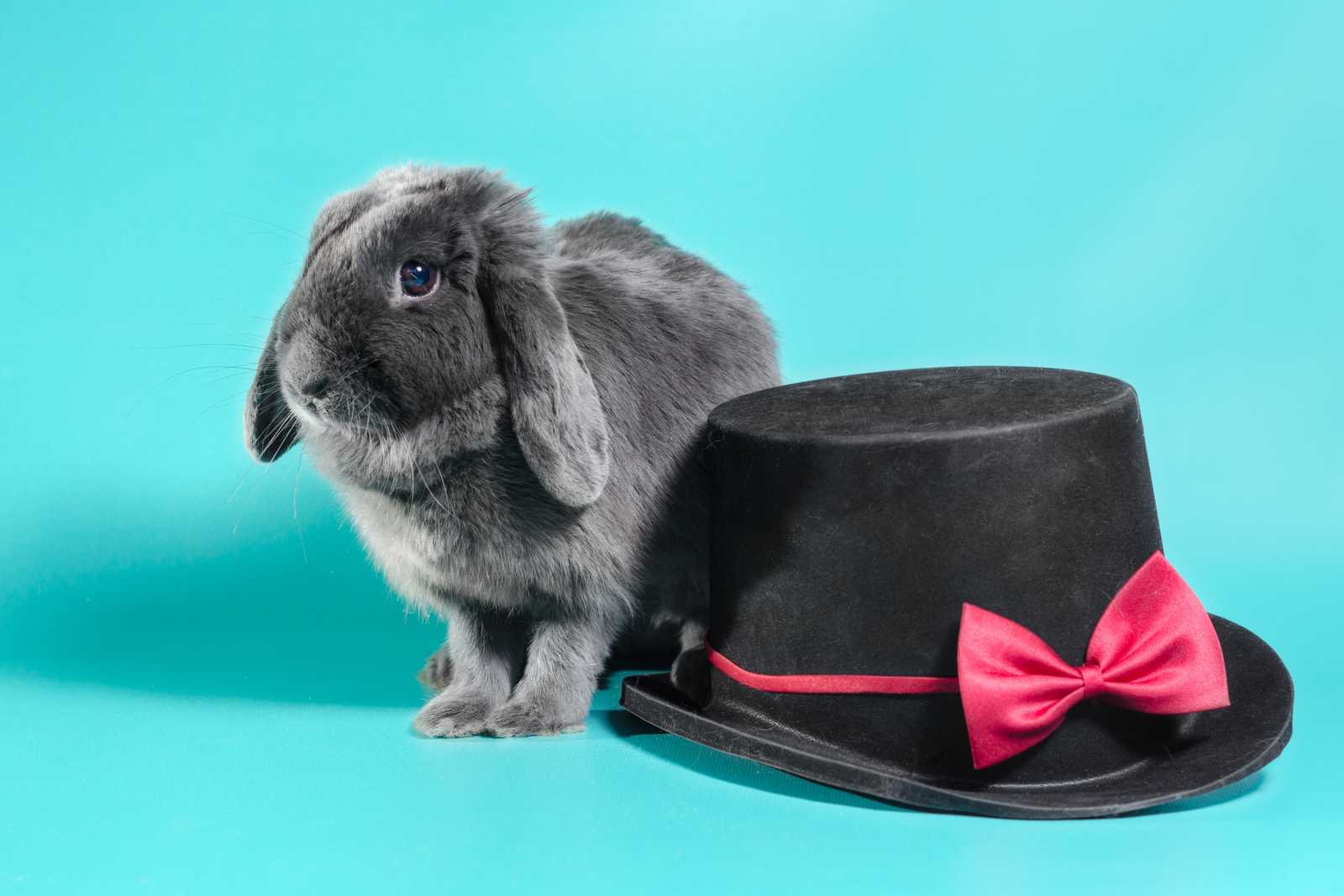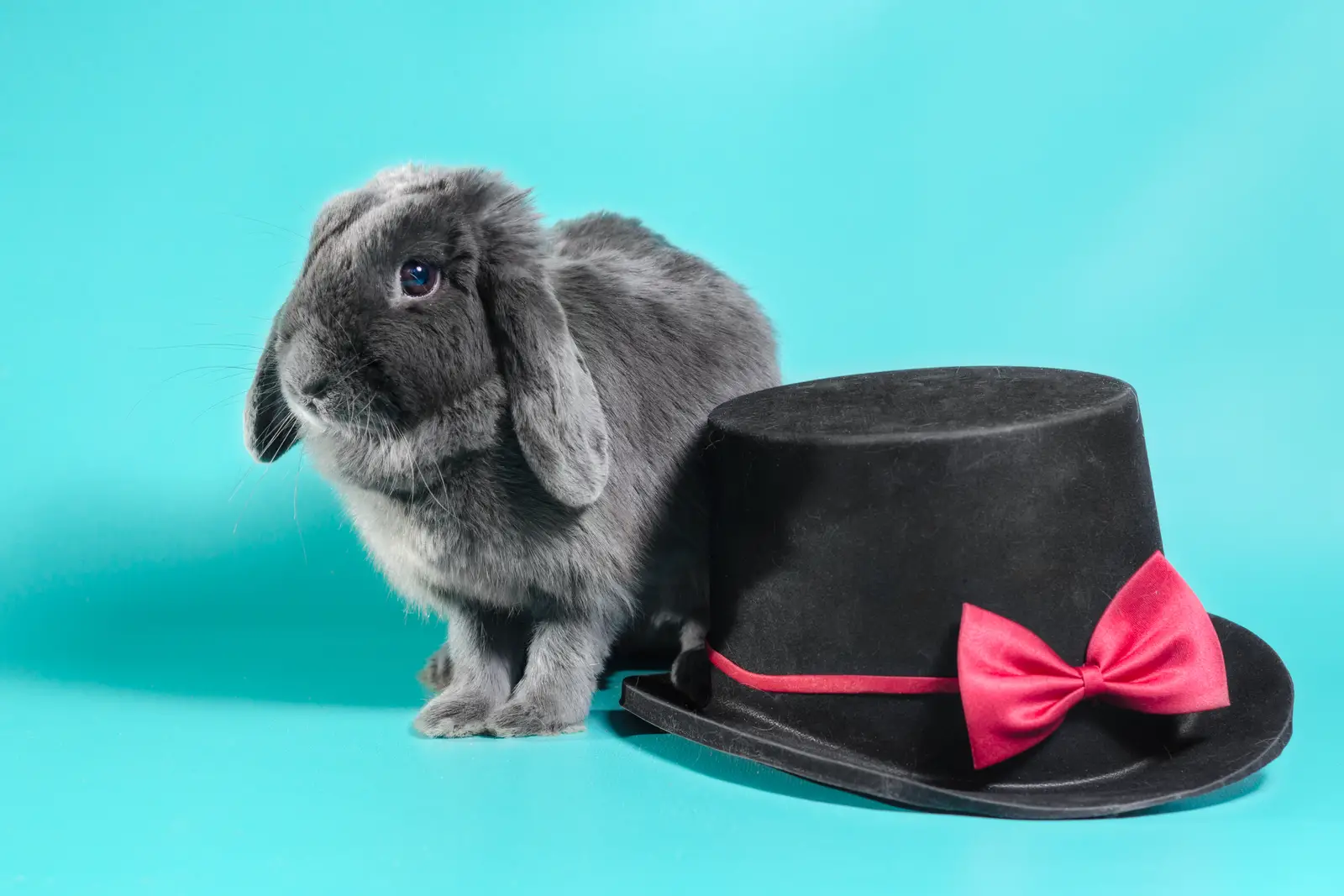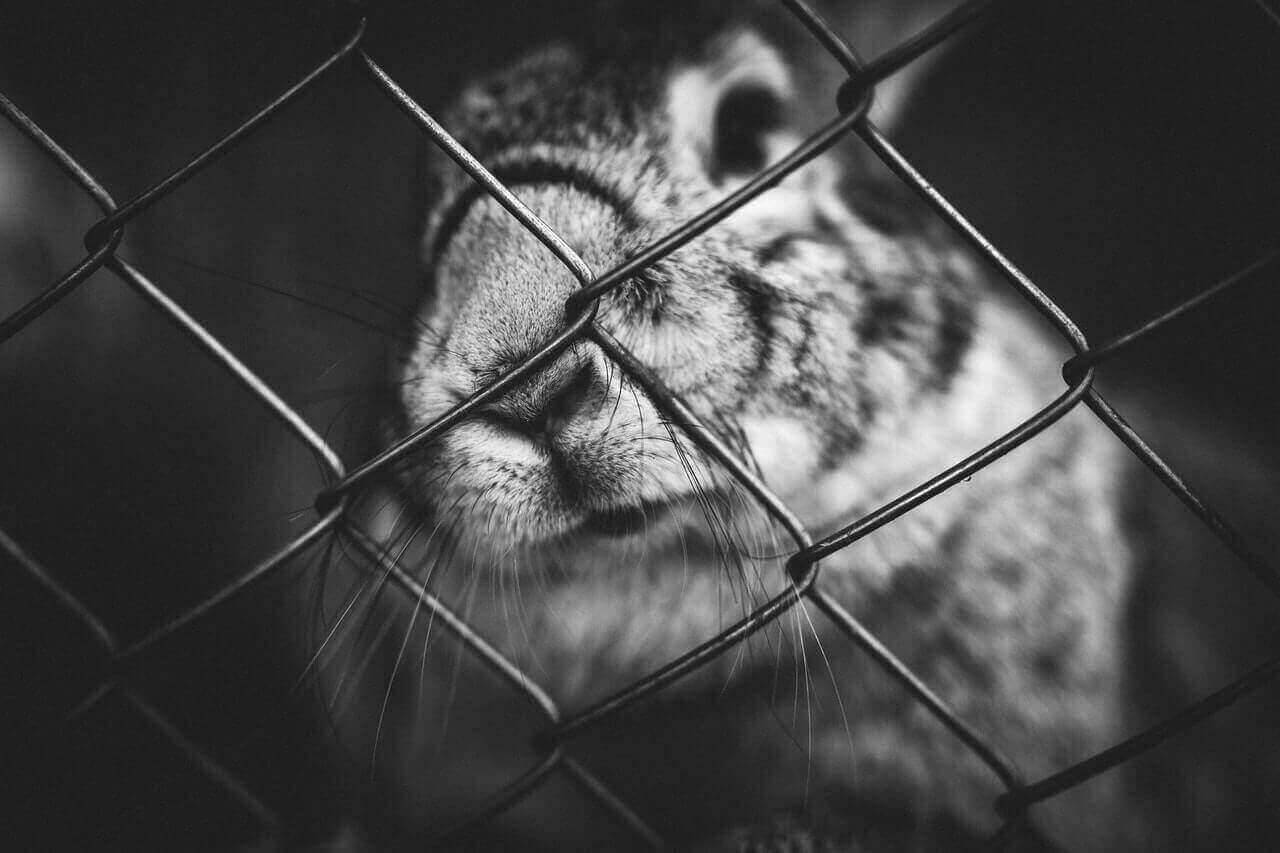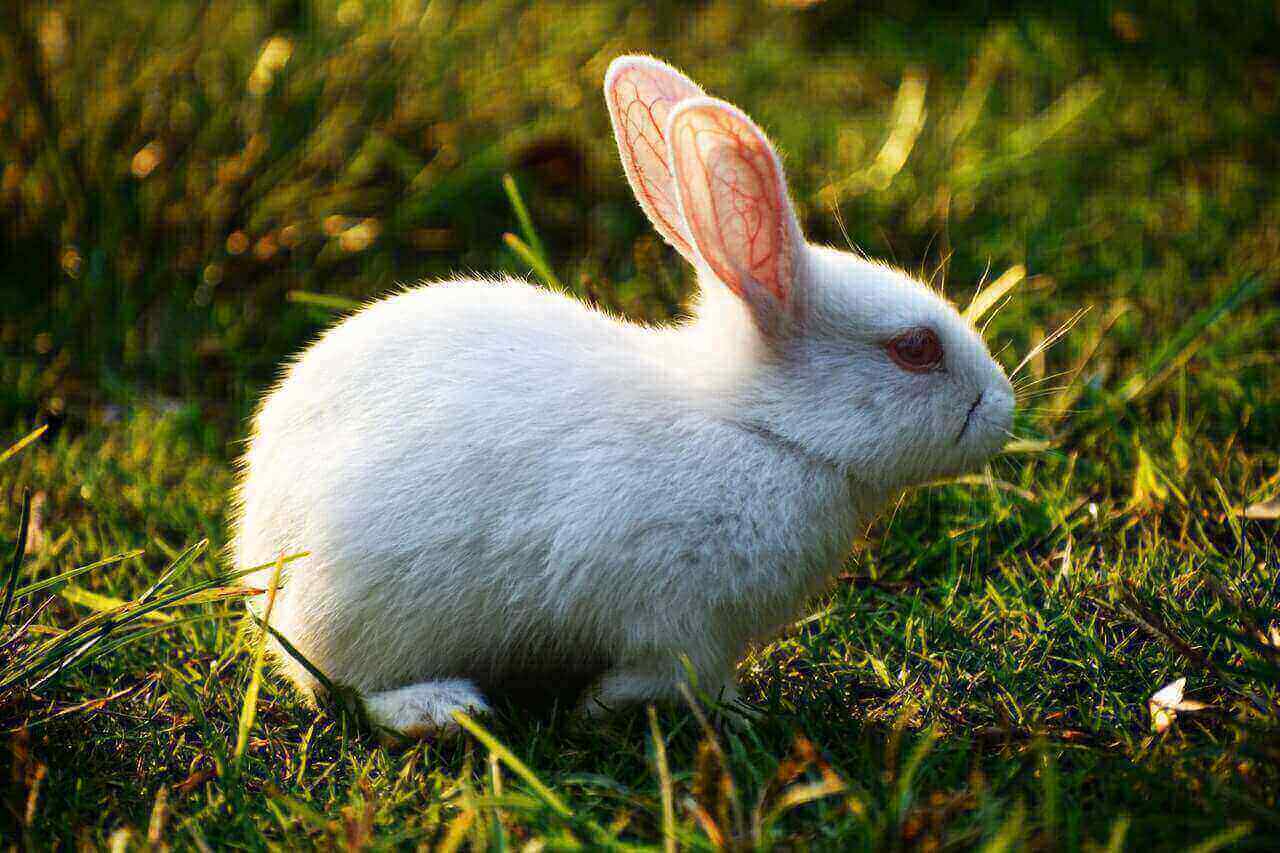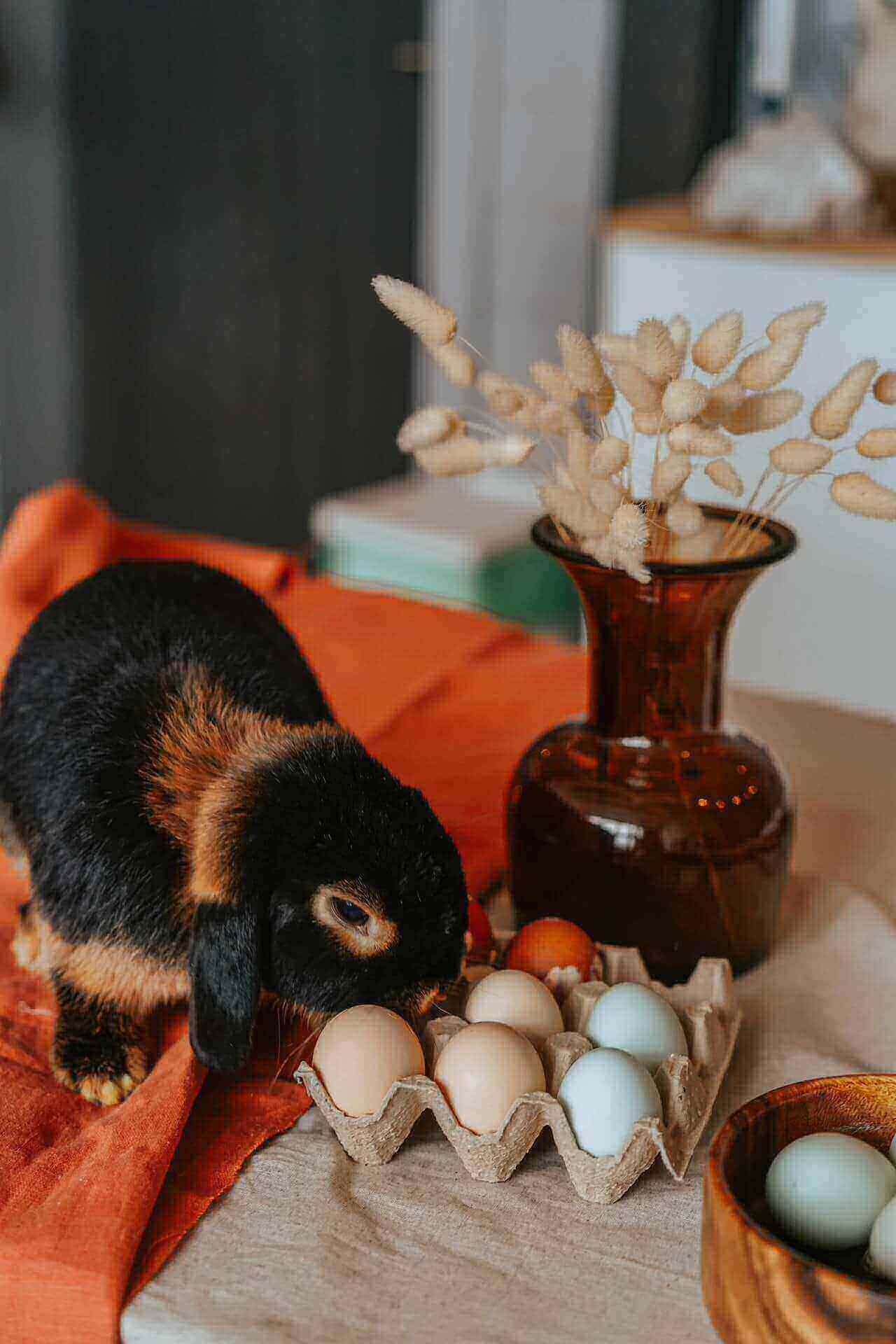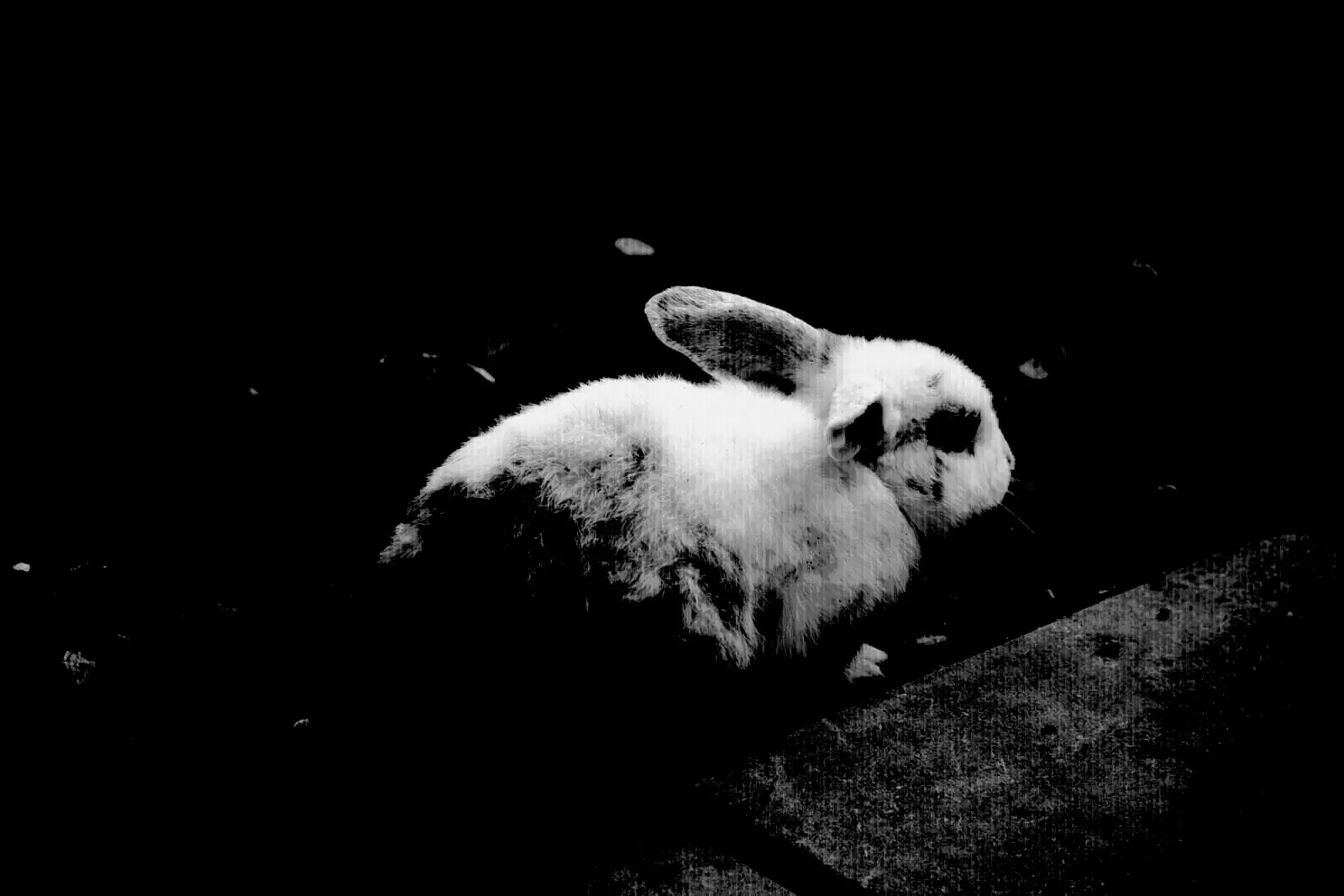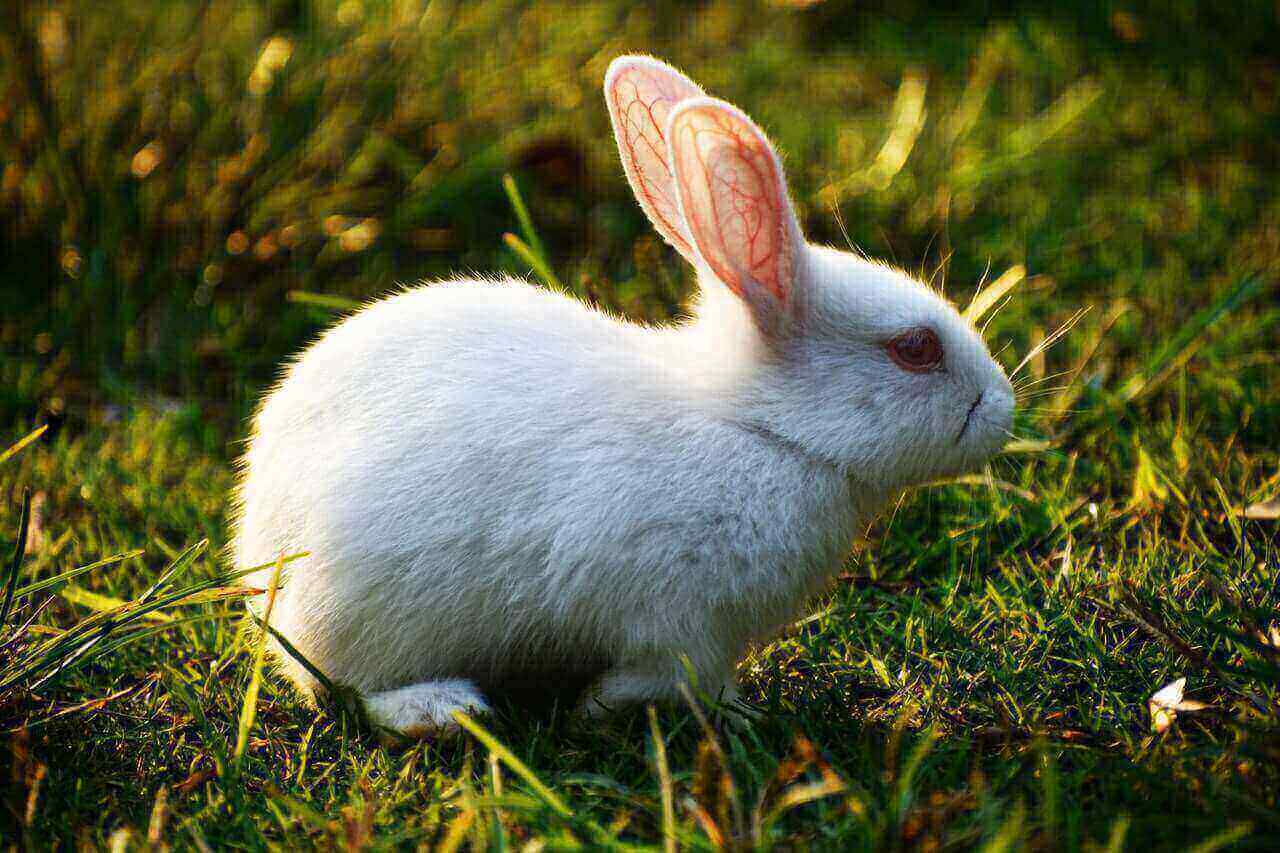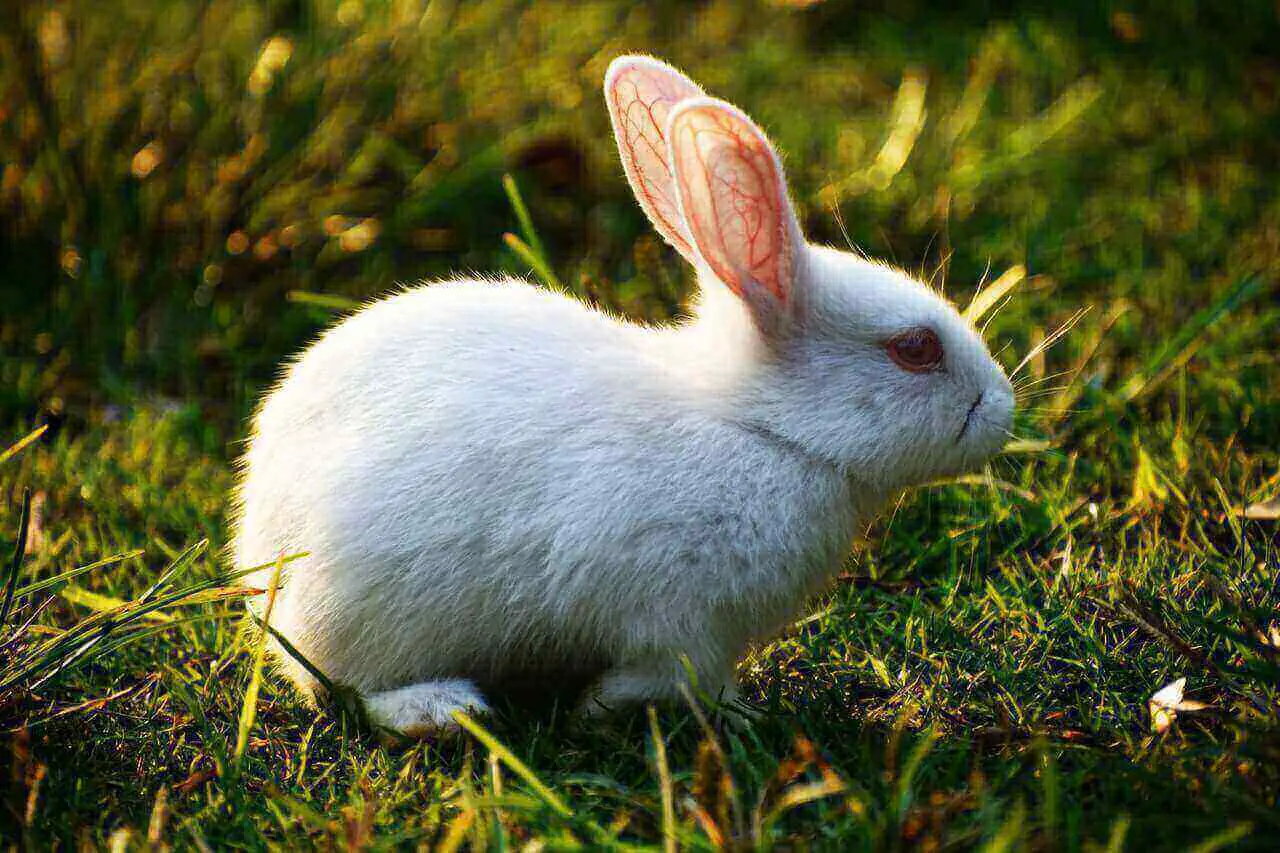The mini lop rabbit is reported to be amongst the most adopted breeds in the USA. It was first introduced in the USA from Europe in 1970. The American Rabbit Breeders Association (ARBA) recognized this breed in 1980.
They are one of the 5 breeds with lop ears recognized by ARBA. Although called ‘mini’, they are not the smallest. There are some breeds like Holland lop and dwarfs are smaller in size and weight than the mini lops.
Since their recognition, the mini lop has captured many laurels in rabbit shows. It is considered a good pet for families with children and also older people for companionship.
Mini lop lifespan is from 8 to 12 years. You can prolong Mini Lop life expectancy to 14 years if you provide good care, and in some rare cases mini lop lifespan can extend up to 18 years.
Rabbit lovers when thinking of adopting a rabbit especially the mini lop have many questions and one of them is how long do mini lops live or what is mini lop lifespan.
Read on if you want to know more about mini lop rabbits, and mini lop lifespan, and more.
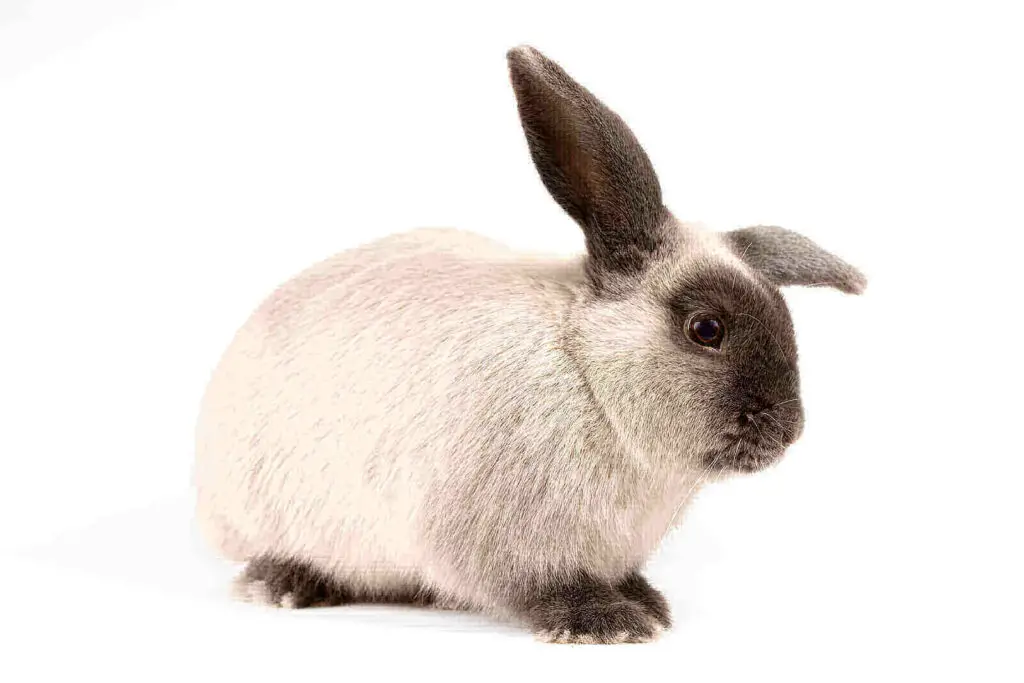
How Long Do Mini Lops Live As Pets?
Mini lop lifespan would be more understandable if we know a little bit about the history of mini lop bunny. Developed around 1950 in Germany, a crossbreed between Chinchilla, French Lop, English Lop, New Zealand, Polish, and Dwarf Lop.
As to how long do mini lops live, the expected lifespan of mini lops is between 7-12 years, but people have reported mini lop rabbit lifespan can extend up to 18 years if properly cared for.
So with good care, environment, and timely medical checks and attention one can expect the mini lop lifespan to go up to 18 years in captivity.
How Long Do Wild Mini Lop Eared Rabbits Live?
It is natural for rabbit enthusiasts to compare the characteristics of pet rabbits to rabbits living in the wild. To know about mini lop lifespan in the wild is difficult at this time.
The mini lop was developed from breeds of domesticated pet rabbits in captivity only some decades ago. The mini lop bunny has not been released into the wild.
It is difficult to know how long do mini lops live in the wild, as all through its life period the breed has been fed and protected by humans and won’t know how to find food or protect itself from adversaries in the wild.
It won’t survive in wild for long. Either it will starve to death, or fall prey to any predator.
Mini Lop Rabbit Lifecycle Stages
Besides the knowledge of how long do mini lop eared rabbits live, their lifespans have been divided into three different groups, making it easier to understand their behavior and be more caring to them.
The normal life span of a mini lop is around 10 years. Vets have divided this life span into three main phases. Namely
- Young Age Baby (birth to 12 months)
- Adulthood (1 to 5 years) and
- Seniority (Old age) (7 years onwards)
These separations of the mini lop lifespan are based on their behavior, needs, requirements, and upkeep for food, nourishment, physical activity, etc.
How to tell how old a baby rabbit is?
Average Mini Lop Lifespan
The average mini lop lifespan as reported by different owners and vets of mini lop is from 8 to 12 years. In some cases, it goes up to 14 years, and in the rare cases reported up to 18 years.
It must be remembered that natural longevity is attained by proper upkeep of the mini lop bunnies by providing love, care, environment, emotional and normal feed, medical attention, etc.
How long do Mini Lops live with proper pet care?
The general query on mini lop rabbit lifespan is that in captivity if proper care is given how long do miniature lop rabbits live?
The average life reported for the mini lop rabbit is between eight to twelve years. As compared to other breeds this is a relatively long lifespan.
Some larger breeds of lop bunnies live only five to six years. Whereas some miniature lop has died in five while others have been reported to live for fifteen years.
However, pet owners mention that if proper care is taken of the mini lop, then the chances of increasing the mini lop bunny lifespan are much more.
Factors Affecting Mini Lop Life Expectancy
It is natural for an owner of a mini lop to expect his mini lop lifespan to be maximum. There are many things the pet owner can do to increase the life expectancy of his mini lop rabbit.
The first factor which can affect the mini lop bunny lifespan is its habitat. It should have an environment that is as natural as possible and not give any stress. They don’t like sudden loud noises.
The bunny should have plenty of room/space to have the required exercise and running around. It should have interactions with humans (owners and children) every day for comfort and love.
The second factor which will affect the mini lop eared rabbit lifespan is its food. Its natural food is hay and water. Vets recommend that 70% of the feed of the rabbit should be natural hay.
Most liked by rabbits are orchard hay, timothy hay, and occasionally alfalfa grass. Balance the rest of the diet (calories) with leafy greens, vegetables, fruits, and pellets
Important is to feed the rabbit at regular times and proper amount as per advice of the vet.
Third important is health and veterinary visits or advice. Watch your pet mini lop for any changes in behavior or health.
You must consult the vet who specializes in such pets and follow his advice. Do not practice medicine yourself. Timely action is important, otherwise, it can aggravate serious complications.
How To Increase Mini Lop Lifespan?
Over many decades of breeding and adaptation of rabbit pets, vets and enthusiasts have come up with many recommendations on how to increase the mini lop lifespan.
Here we discuss in brief some important factors which can influence how long do mini lops live.
Keep Mini Lop Safe Inside And Outside Home
Rabbit owners tell that mini lops are happy being housed outside in their hutch. He should have plenty of area to stretch and jump around. Their hutch must be sheltered from adverse weather.
There should be plenty of hay and other straws for feeding and warmth. They can easily bear cold weather, provided they have proper shelter.
If they are housed inside the home, they should be put in a fenced area with ample room for stretching and jumping around and a proper relief area. They should only roam in the house with your control.
Mini lop is a very active and playful and energetic rabbit. To give it a quality life it is important for the owner to give some quality time to his pet. This should include physical activity.
The mini lop should be taken out of its enclosure to play and create a love bond with its owner and household, especially children.
If playing in the backyard, keep watch, as being a small animal it can easily fall prey to any predator like a dog, skunk, raccoon, cat, etc.
Rabbit is a very timid animal, even a loud bang can give it heart failure. The hutch or its home must give a sense of security to the rabbit, and a safe place to hide.
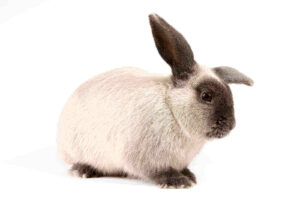
Regular Vet Visits For Mini Lop Health
Health is very important for a long mini lop lifespan. As an owner and handler, you must know its every habit and action.
It is suggested to make a visit to the vet once a year for a general health checkup. When it gets old then a visit every six months is recommended.
Some vets recommend a quarterly visit of the rabbit for his wellness checkup. Once the vet has examined the rabbit, he can advise for the repeat visit.
A keen pet owner will immediately notice any subtle change in its everyday activity and know when to consult the vet. The vet must specialize in small pets, like rabbits-not cats and dogs.
Do not try giving your own medications without his advice, and if there is a need to take the sick rabbit to the vet, do not delay it.
Follow Proper Mini Lop Diet
The most important factor for increasing mini lop lifespan is its food. The natural feed for a bunny is hay. Provide plenty of fresh hay in the rabbits’ enclosure, because besides munching they also rest on it.
Timothy, brome, meadow, and orchard grass are good examples. Alfalfa hay is high in calcium and is given in the young stage. In later years its quantity is reduced, as a high percentage of calcium can give urinary stone problems.
As a rule of thumb vets say the hay and grass should comprise the bulk of its feed. The rabbits are very happy to munch it. The next major portion should comprise leafy greens and vegetables.
Fruits should only be given as treats, they are high in sugar and acidic. The pellet feed bought from stores should be used as supplements to balance the nutrients, vitamins, and minerals.
Take care to give a mix of the foodstuffs and the rabbit does not get stuck on liking just a few types of food.
Overall control the diet, timings, and quantities. It is easy to overfeed the rabbit, making him overweight, which will lead to other health problems.
Neutering or Spaying Your Mini Lop
It is claimed by pet owners that neutering (male) or spaying (female) increases the mini lop bunny’s life expectancy. For a male, the increase expected is a year or two. While for females it is around 3 to 4 years.
The earlier this action is taken, the better it is. Males can be neutered by the 12th week, while females are spayed by age of 16 weeks. Ten days after surgery the rabbit is up and running.
Neutering and spaying lessen the aggressive behavior hormones, resulting in a much calmer rabbit, much manageable. Aggression itself is a stress-producing factor.
Owners report that neutered/spayed rabbits display much calmer attitudes, destructive conducts subside and is much easier to train them.
By eliminating the reproductive organs the diseases associated with them are also eliminated, helping improve the overall health and life span.
Interestingly their basic personality traits like charm, mischief, love, and friendliness are not affected. Normally it takes 2 to 4 weeks after surgery for the new hormonal balance to become effective.
Mini Lop Entertainment
The best is a bonded pair of mini lops (spayed/neutered) as they are social animals, and love to be amongst themselves. You must develop a bond with them.
Consider yourself as part of the play team. Give some quality hours with your pets every day.
Besides munching on hay and grass, bunnies like digging. If possible give them an opportunity to burrow in the ground. When they groom themselves, you can spend time with them brushing them.
Rabbits’ teeth grow continuously throughout their lives. Important for them to gnaw or nibble to wear out the teeth, otherwise teeth will overgrow and injure their mouth, giving more health problems.
Cardboard boxes and balls are suggested for play along with some chew toys, bought from a pet store. There is an unlimited variety of toys and objects for a bunny to play with.
Keep changing the toys, so he does not get bored with one type of toy.
Be innovative, just assure it is safe for the bunny and yourself. Bunnies like to play on ground level. So you may also sit or lie down on floor while playing with them.
Learn to know the body and sound language of your bunny, when he is asking for friendly play and when he means go away. Let it take the lead to approach you. Do not force yourself on him.
Do not handle your mini lops too much, as like all rabbits they don’t like to be handled so often.
Mini Lop Exercise
Experts suggest that the mini lops must be given at least 3 to 4 hours of free time every day for playful, running, jumping, and exercise activities.
The best is a safe backyard, which has been bunny-proofed, to play under your supervision. Alternatively can do it inside your house with ample clear floor space.
You as a handler must be involved in these activities, for safety and supervision and building bonds with your pets.
Bunnies don’t have the temperament for a walk on a leash like dogs. They are just not built that way. One may try training. One such source is Minnesota Companion Rabbit Society.
FAQ
How Long Do Mini Lops Live?
Whenever a rabbit enthusiast wants to adopt a mini lop one of the question besides many others which come up is how long do mini lop rabbits live.
As verified by the pet owners and vets a mini lop has an average life span of 7 to 12 years. With the provision of proper care and love, one can expect an increase of 2 to 4 years in their life span.
Final Verdict On mini lop lifespan
Mini lop is one of the most adopted pets currently in households. It is natural one wants to know how long do mini lops live, and further how they can help them in living longer.
Mini lop is a crossbreed and carries the longevity genes from their master parents. As such we cannot do anything here. As owners, we can help them live longer by adapting many things.
First, as an owner, we must commit our time and efforts for the wellbeing of the pet. We have to treat them like our family members with love and care.

We can understand the language of our children and communicate with them easily, but we must be able to know the signs and sounds of the little pet, what he is trying to convey to us.
Over time a vast amount of information and knowledge from zoologists, ethologist, veterinarians, pet owners, and lovers is available in different forums. One just needs to tap at the right place.
The crux of how to increase mini lop life span is by following the below guidance.
- Good habitat or rabbit home, he should not be fearful in there
- Proper diet and food in right quantity and time, as natural as possible
- Proper time and attention, love, and care from the owner or handler
- Regular physical and play activity for a good health
- Regular and quick medical care
- Neutering or Spaying

Welcome to Learn About Pet. My name is Rajkumar Ravichandran and I love all pets, travel, and amazing food. I write about my passion and personal experience caring for multiple pets in this blog! ❤️
Post Disclaimer
DISCLAIMER: THIS BLOG OR WEBSITE, "Learn About Pet", DOES NOT PROVIDE YOU WITH MEDICAL ADVICE AND IS NOT A SUBSTITUTE FOR MEDICAL ADVICE. ALWAYS GET IN TOUCH WITH YOUR PERSONAL VETERINARIAN AND USE INFORMATION HERE AS GENERAL ADVICE.
The information, including but not limited to, text, graphics, images and other material contained on this website are for informational purposes only. No material on this site is intended to be a substitute for professional veterinary advice, food recommendation, diagnosis, or treatment. Always seek the advice of your veterinarian or other qualified health care provider with any questions you may have regarding a medical condition or for pet food related questions.
